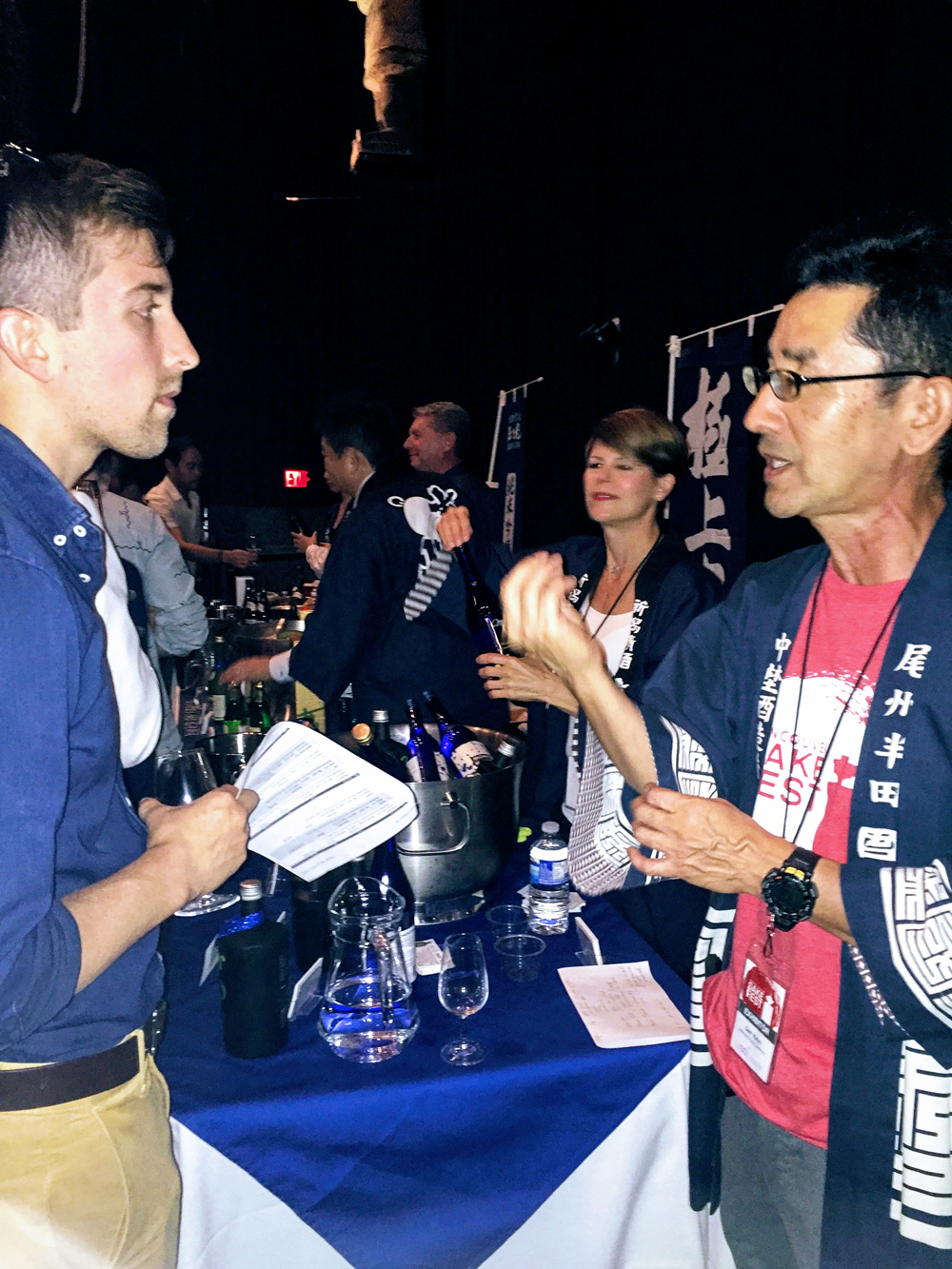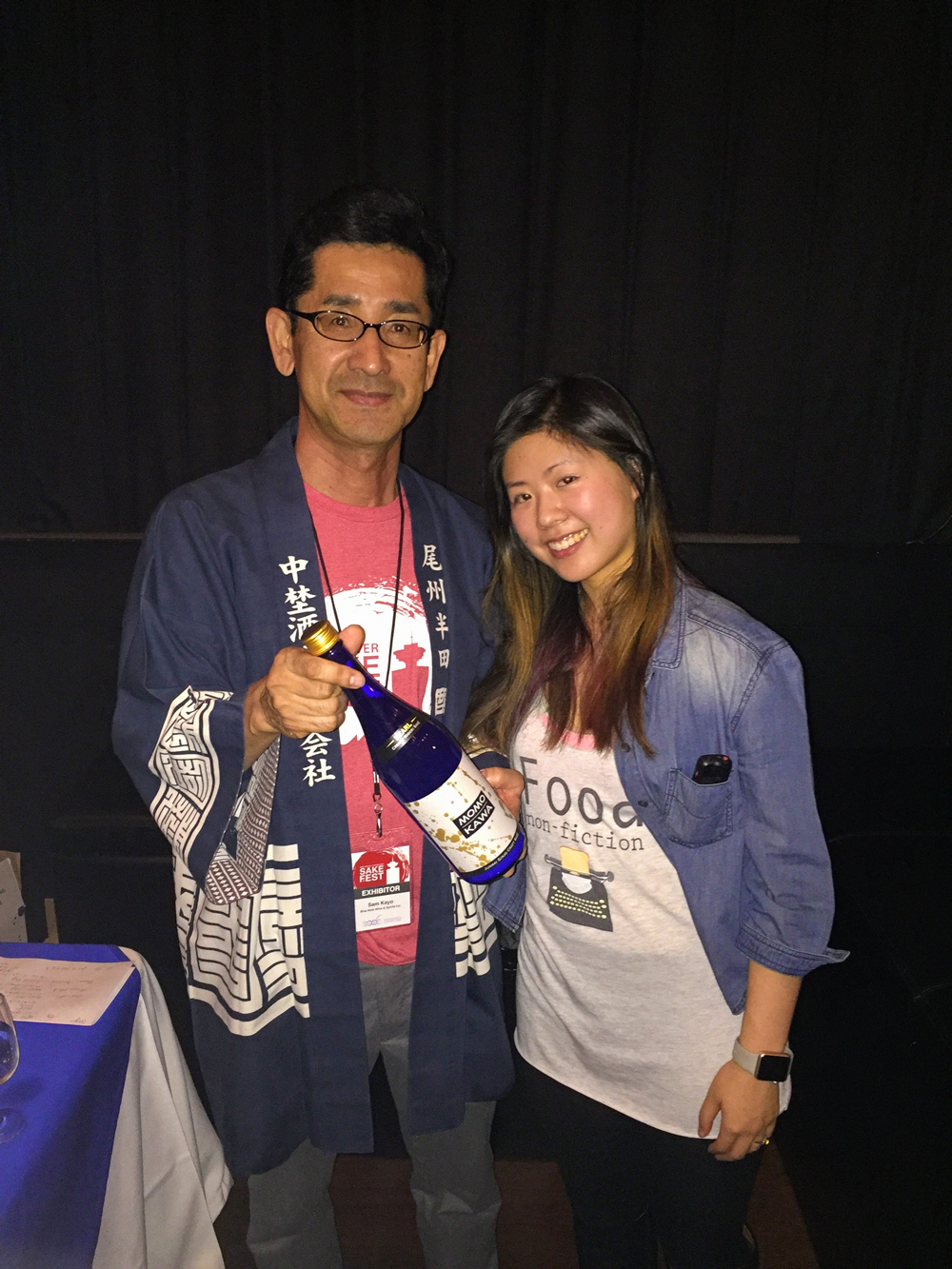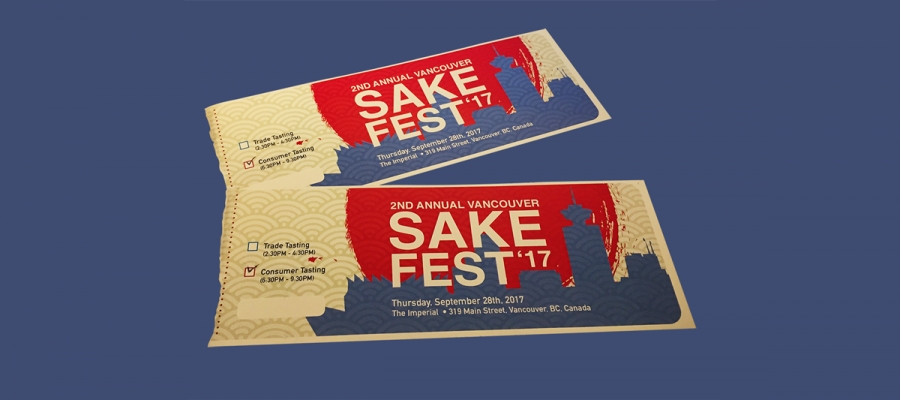
On Thursday Sept. 28, I went to the 2nd Annual Sake Fest in Vancouver with my friend Nate. It's the biggest sake showcase in Western Canada and it was an absolute blast. For 3 hours, we went from table to table, tasting sake from Canada, USA, and Japan. Along with the sake, there was fantastic food, including takoyaki, chicken karaage, and sandwiches. Taiko drummers performed on a stage and the whole place was buzzing with energy. While most of the tickets were included in the ticket price, we were also able to get "Platinum" tickets to try out premium sakes - the first one we tried was called "18" from Tatenokawa.
The event was put on by the Sake Association of BC. This association aims to make sake more of a household drink - something that your average Canadian might have on hand, like beer or wine. They're a passionate group and every single member of the association was at the Sake Fest. So before I go on, I'd like to say thank you to the Sake Association of BC for hosting a really fun event and having me there! Here's a page from the association's website explaining the basics of sake - it's a fun read: Sake 101 Page
Talking to A Sake Professional
While I was there, I met someone who had answers to every question I had about sake - Elise Gee. Her sake credentials are downright impressive (she is a Certified Sake Professional (CSP), an Advanced Sake Professional (ASP), a WSET Level 3 in Sake, and a certified instructor for all WSET sake courses). She has travelled all over Japan to learn about sake production, so naturally I had plenty of questions.

Me: What are the current flavor trends for sake creators?
Elise: In Japan, the big trend is to keep it simple: to leave the sake as-is and not do too much in terms of pasteurization (which is typically done twice back in the old days). So unpasteurized (or once pasteurized) is common, undiluted (most sake is diluted from 18-20% abv to about 14-16%) so that you get the original brew untouched and unsullied. Sake seems to be bolder, brash and a little punk rock right now. I like what I'm seeing from the younger generation of brewers. The new wave of young brewers are trying to appeal to wine drinkers, so we are seeing more sakes with higher acid (sake has 1/10th of the acidity of wine) and modern typography and westernized names to gain interest with Japanese Millennials.
Me: What words/terms do you use to describe the taste of sake? E.g. When people describe wine they typically use words like aromatic, dry, full-bodied, etc.
Elise: The same terms used in wine can describe sake as well. As with grapes in wine, the type of rice, how much the rice is polished, and the types of yeast used to ferment will imbue a huge range of flavours and aromas in sake. Junmai sakes tend to be richer, full-bodied and drier, the higher polished Junmai Ginjo/Ginjo or Junmai Daiginjo/Daiginjo sakes tend to be more aromatic, light, smooth and elegant.
Me: Can you describe the various grades of sake?
Elise: There are 6 grades of premium sake. In Japan, the grading system is a benchmark to determine the nuances and flavour profiles in a sake, and there are certain rules that are standardized in order to quality a sake as 'premium'. In simplest of terms (although very complicated), in order to call a sake premium or special designation sake (tokutei meishoushu), there are certain determinations needed for the qualification: the quality of the rice itself (sake rice is different in construction than the table rice that you eat - it has a higher starch content and the starch is concentrated in the centre of the grain, whereas in table rice, the starch is dispersed evenly throughout the grain); how much the grains of rice have been polished or milled away, and special brewing methods, all help to determine whether it is considered premium or not.
Me: Can you describe very simply how sake is made?
Elise: Sake is closer to beer in how it is made, compared to wine. However, it is far more difficult to ferment than either drink. As with beer, we have a starch that needs to be converted to fermentable sugars. Wine has this easily with ripe grapes, but with rice, it is a little harder to extract the fermentable sugars. We use a fungus called koji-kin to help transfer the starch into sugar when making sake. About 20% of the rice used in a batch of sake is converted into koji (the converted rice that now has fermentable sugars). This koji will mix with regular steamed rice which, over time, will slowly convert the rest of the starch into sugar. We only create a small part of the rice, earmarked for a tank, into koji, so that the fermentation process (of starch to sugar, sugar to alcohol) is done in a slow, controlled manner. Once fermentation is complete, which can take 20-40 days depending on the grade of sake you're producing, the sake mash will be pressed so that we have a clear liquid, separated from the rice solids. The sake can then be bottled or sometimes it will sit in a tank for a period of time to settle. It will then be pasteurized or sometimes it won't and left as is.
Me: For people interested in sake, what are good resources for learning about it?
Elise: To learn more about sake, you should get out and drink more sake, taste and learn about the stories of each brewery and how they make their sake. This is an important aspect in appreciating what you are consuming. We have great sake establishments in town and I encourage those interested in sake to get out to some izakayas and taste more sake. It's the only way you will be able to determine what kinds of sake you like. There are so many grades and styles to choose from and we are all unique in our preferences. I guarantee there is a sake for every person out there.
If you're interested in following Elise Gee, you can find her on Twitter at @seishu (the official Japanese term for sake) & on Instagram at @vancouversake. She also has a website where you can contact her at vancouversake.com. Thanks Elise!

